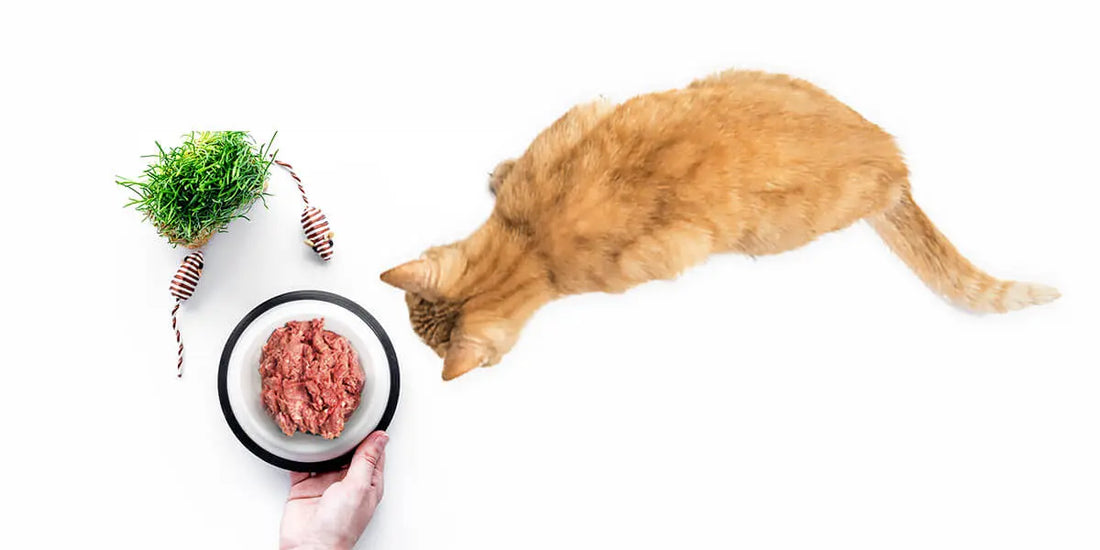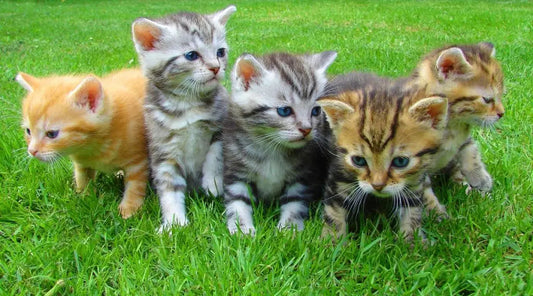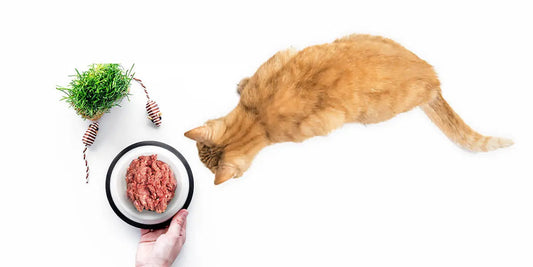
Is Turkey Good for Cats? Why It Might Be the Perfect Protein
Turkey is a common ingredient in many commercial cat foods as the primary source of protein. Yet, when it comes to feeding turkey, many cat owners are uncertain about its safety and nutritional value.
Cats are carnivores, and they need a diet rich in animal protein. Turkey represents a lean and nutritious option. We will explore the nutritional value of turkey for cats, benefits, potential risks, and best practices for feeding it responsibly. If you are wondering if turkey is good for cats, the short answer is yes, as long as you don’t feed a whole one.
Why Turkey Can Be a Healthy Choice for Cats
Cats are obligate carnivores. Their body is designed to eat and process meat and get protein from animal sources. Many cats love turkey and chicken meat. But why exactly is turkey one of the more popular options for protein source in cat foods? And can you feed all kinds of turkey to your cat?
As a lean protein low in calories and fat, turkey has plenty of nutritional benefits for your feline companion. Turkey meat contains B vitamins, selenium, magnesium, zinc, phosphorus, and potassium. Additionally, turkey meat contains an amino acid called tryptophan, which makes cats sleepy and calm. With that in mind, let’s break down the benefits of turkey as a protein source for cats.
-
Turkey is a relatively lean meat, high in animal-based protein and low in fat. As such, it helps cats maintain a healthy weight.
-
Less likely to cause allergies to cats compared to other proteins, and can be used for cats with food sensitivities.
-
Feeding turkey improves the variety of protein sources in your cat’s diet, preventing boredom at the bowl and delivering a broader range of essential nutrients.
-
Turkey contains high-quality amino acids, necessary for various bodily functions, including immune system support and muscle development.
-
Cats find turkey meat to be palatable, which entices them to eat it.
-
Turkey contains important nutrients, including B vitamins, zinc, phosphorus, and more that are beneficial for a cat’s overall health.
Is Turkey Safe for Cats to Eat?
Turkey is safe for cats when fed in the right form and portion. However, it should only be offered as a treat or occasional supplement unless part of a complete and balanced diet. Turkey meat shouldn’t have any bones in it, skin, or seasonings. Speaking of safety, here is a step-by-step guide on how to safely introduce turkey into your cat’s diet.
-
Start with a gradual transition because cats are sensitive to sudden dietary changes. When switching their main protein source, do it gradually over a period of seven to ten days. Start by mixing a small amount of the new turkey-based recipe with their current food and gradually increase the proportion of turkey until you get to 100%.
-
Make sure that the turkey-based recipe is balanced and meets your cat’s nutritional needs, depending on life stage.
-
Make sure your feline has access to fresh water when you transition to a diet.. While cats get most of their moisture from food, they need fresh water during the transition to a different food.
-
Choose a turkey cat food brand with high-quality turkey protein. A good practice is to look at the label of the food. If turkey is listed as the first ingredient, it means that the company uses high-quality turkey meat.
-
Monitor your cat’s behavior and weight during the transition. Pay attention to any sudden weight loss, appetite loss, or any other signs of digestive stress. Cats should continue to show interest in their food and maintain normal activity levels.
-
If you decide to prepare homemade turkey-based meals, always consult with a veterinarian whether your cat needs additional supplements to their diet.
Potential Risks of Feeding Turkey
While turkey meat is less likely to cause an allergic reaction, it is still a good idea to introduce it slowly and gradually. Watch for any signs of allergies and digestive upset, including vomiting, diarrhea, and skin issues.
With any diet change, cats might experience gastroenteritis or colitis, an inflammation of the stomach and small intestines. If you notice any signs of digestive upset, consult with your veterinarian.
Best Forms of Turkey for Your Cat
Now that we talked about turkey meat and its benefits for cats, let’s talk about the different types. Do you want to know whether cats can eat raw or cooked turkey? What about turkey skin? Or turkey bacon? Let’s take a look.
Should Cats Eat Raw or Cooked Turkey?
Both raw and cooked turkey can offer nutritional benefits for cats—but safety and sourcing make a big difference. Raw turkey is biologically appropriate and rich in natural enzymes, moisture, and amino acids. However, feeding it at home comes with potential risks like Salmonella or E. coli contamination, especially if the meat isn’t handled or stored properly.
On the other hand, cooked turkey—as long as it's plain, unseasoned, and free of bones or skin—is generally safer for everyday feeding. It still delivers protein and essential nutrients but may lose some heat-sensitive vitamins during cooking.
That’s where Darwin’s Natural Pet Products offers the best of both worlds. Our raw turkey recipes are gently processed to eliminate harmful pathogens while preserving the integrity of the nutrients your cat needs to thrive. We use only USDA-inspected, antibiotic-free turkey, and every recipe is developed in consultation with veterinary nutritionists to ensure safety and balance.
Can Cats Eat Turkey Bones or Skin?
Pet owners should remove all of the turkey skin and bones before feeding it to their cats. The skin is high in fat and can cause an upset stomach or a serious case of pancreatitis inflammation. Turkey bones are hollow and fragile. They can splinter easily and cause choking hazards and injuries.
How Darwin’s Cares For Your Cat
At Darwin’s, we know your cat is more than a pet—they’re family. That’s why we create fresh cat food with the same care and quality we’d expect for our own loved ones. With real, antibiotic-free turkey and a commitment to transparency and nutrition, our fresh food helps your cat feel their best every day. When you feed Darwin’s, you're not just filling a bowl—you’re nourishing a life.


